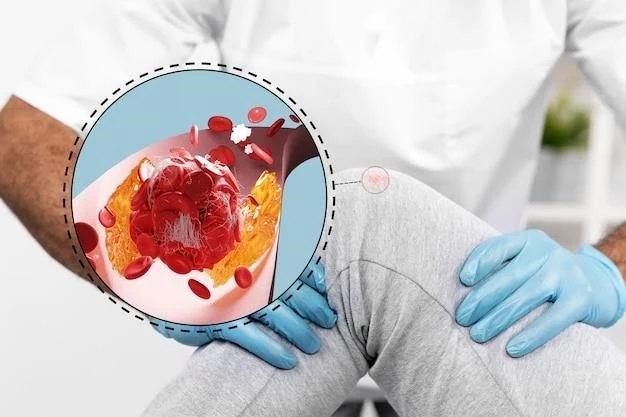Overview of Periodic Disease
Familial Mediterranean Fever (FMF) and TNF Receptor-Associated Periodic Fever Syndrome (TRAPS) are types of periodic diseases characterized by recurrent fevers and inflammation affecting various organs.
Definition and Background
Periodic disease, also known as Familial Mediterranean Fever (FMF) or TNF Receptor-Associated Periodic Fever Syndrome (TRAPS), is a group of heritable autoinflammatory disorders characterized by recurrent fevers, inflammation, and specific symptomatology impacting various organs;
These diseases typically present with episodes of fever, abdominal, pulmonary, and joint inflammation, without autoantibodies or infection. While the exact causes are not fully understood, there is a known genetic component to these disorders, often manifesting in childhood. Diagnosis involves diagnostic procedures to differentiate from other conditions, with treatment focusing on management strategies and specific medication and therapies tailored to each syndrome.
Types of Periodic Diseases
Familial Mediterranean Fever (FMF) and TNF Receptor-Associated Periodic Fever Syndrome (TRAPS) are classified as common types of periodic diseases. FMF is characterized by recurrent fevers and serosal inflammation, while TRAPS presents with episodes of inflammation lasting several days.
Familial Mediterranean Fever (FMF)
Familial Mediterranean Fever (FMF), also known as periodic peritonitis, is an autoinflammatory genetic disorder characterized by recurrent fevers and serosal inflammation affecting the abdomen, lungs, and joints, leading to severe pain. The first attack often occurs in childhood and is typically accompanied by episodes of fever, chest pain, and joint inflammation. FMF can substantially impact the quality of life due to the recurrent nature of symptoms and potential complications such as kidney disease if left untreated.
TNF Receptor-Associated Periodic Fever Syndrome (TRAPS)
TNF Receptor-Associated Periodic Fever Syndrome (TRAPS) is a genetic disorder marked by recurrent episodes of inflammation lasting days, triggered by various factors like stress or infection. Its symptoms include fever, abdominal pain, joint inflammation, myalgia, migratory rash, and eye inflammation, with severity varying among individuals. TRAPS typically requires individualized treatment strategies to manage the episodes effectively.
Hereditary Periodic Fever Syndromes
Hereditary Periodic Fever Syndromes are a subset of autoinflammatory disorders characterized by recurrent fevers and organ-specific inflammation. These syndromes typically manifest in childhood, with symptoms not explained by other causes. Various conditions fall under this category, such as Familial Mediterranean Fever and Tumor Necrosis Factor Receptor-Associated Periodic Syndrome. The onset usually occurs in childhood, impacting the quality of life and requiring tailored treatment strategies.
Clinical Features and Symptoms
Familial Mediterranean Fever (FMF) presents with recurrent fevers, serosal inflammation affecting the abdomen, lungs, and joints, leading to severe pain.
Recurrent Fevers and Inflammation
Familial Mediterranean Fever (FMF) and TNF Receptor-Associated Periodic Fever Syndrome (TRAPS) are characterized by recurrent episodes of fever and inflammation affecting various organs. FMF specifically targets the abdomen, lungs, and joints, leading to severe pain, while TRAPS manifests as episodes of inflammation lasting several days, with triggers such as stress or infection.
Specific Symptomatology
Specific symptoms of periodic diseases such as Familial Mediterranean Fever (FMF) and TNF Receptor-Associated Periodic Fever Syndrome (TRAPS) include recurrent fevers, serosal inflammation affecting the abdomen, lungs, and joints, leading to severe pain. Additionally, symptoms may involve abdominal pain, arthralgia, myalgia, migratory rash, and eye inflammation, varying in severity among individuals. These symptoms often manifest in childhood and impact the quality of life.

Causes of Periodic Diseases
Periodic diseases like Familial Mediterranean Fever (FMF) and TNF Receptor-Associated Periodic Fever Syndrome (TRAPS) are primarily caused by autoinflammatory genetic factors leading to recurrent fevers and inflammation.
Autoinflammatory Genetic Factors
Autoinflammatory genetic factors play a critical role in the development of periodic diseases like Familial Mediterranean Fever (FMF) and TNF Receptor-Associated Periodic Fever Syndrome (TRAPS). These factors lead to recurrent fevers and inflammation targeting various organs, with symptoms often beginning in childhood. The genetic basis of these conditions results in episodes of inflammation without infection or autoantibodies, necessitating tailored treatment strategies for affected individuals.
Hereditary and Familial Patterns
Periodic diseases like Familial Mediterranean Fever (FMF) and TNF Receptor-Associated Periodic Fever Syndrome (TRAPS) often exhibit hereditary and familial patterns, with many patients developing symptoms during childhood. These disorders are inherited and typically present with recurrent fever episodes, impacting various organs. Identifying a family history of periodic fevers is crucial in diagnosing and understanding the genetic basis of these conditions.

Diagnosis and Prognosis
Periodic diseases like Familial Mediterranean Fever (FMF) and TNF Receptor-Associated Periodic Fever Syndrome (TRAPS) are diagnosed through specific diagnostic procedures that aim to differentiate them from other conditions. Prognosis considerations include the severity of symptoms and the effectiveness of tailored treatment strategies for managing the recurrent episodes of fever and inflammation.
Diagnostic Procedures
Diagnosing periodic diseases such as Familial Mediterranean Fever (FMF) and TNF Receptor-Associated Periodic Fever Syndrome (TRAPS) involves specific diagnostic procedures. These procedures aim to differentiate these conditions from other possible illnesses. Additionally, doctors may conduct blood tests, genetic testing, and review family medical history to confirm the diagnosis of periodic diseases accurately.
Prognostic Considerations
Prognosis considerations for periodic diseases like Familial Mediterranean Fever (FMF) and TNF Receptor-Associated Periodic Fever Syndrome (TRAPS) revolve around managing the severity of symptoms and implementing effective treatment strategies. Understanding the long-term impact of these conditions, the frequency of recurrent episodes, and the potential complications is crucial in providing optimal care and improving the quality of life for patients affected by these recurrent fevers and inflammation.
Management strategies for periodic diseases such as Familial Mediterranean Fever (FMF) and TNF Receptor-Associated Periodic Fever Syndrome (TRAPS) focus on individualized treatment plans to address the recurrent episodes of fever and inflammation. These treatment options commonly include specific medications and targeted therapies tailored to the unique characteristics of each syndrome.
Treatment Options
Management strategies for periodic diseases focus on individualized treatment plans to address recurrent episodes of fever and inflammation. Treatment options often include specific medications and targeted therapies tailored to each syndrome’s unique characteristics.
Medication and Therapies
Medication and therapies for periodic diseases like Familial Mediterranean Fever (FMF) and TNF Receptor-Associated Periodic Fever Syndrome (TRAPS) aim to alleviate symptoms and manage inflammation. Treatment often involves specific medications such as colchicine for FMF to reduce inflammation and prevent attacks, or biologics like anti-TNF agents for TRAPS to target the underlying inflammatory pathways. Additionally, lifestyle modifications and supportive therapies may be recommended to enhance overall management of these chronic conditions.
Impact on Specific Organs
Periodic diseases, such as Familial Mediterranean Fever (FMF) and TNF Receptor-Associated Periodic Fever Syndrome (TRAPS), have implications on abdominal, pulmonary, and joint health, leading to inflammation and potential complications.
Effects on Abdominal, Pulmonary, and Joint Health
Periodic diseases like Familial Mediterranean Fever (FMF) and TNF Receptor-Associated Periodic Fever Syndrome (TRAPS) have a significant impact on abdominal, pulmonary, and joint health. These conditions lead to inflammation in these organs, resulting in severe abdominal pain, lung complications, and joint issues. It is crucial to address the effects on these specific organs to manage the symptoms and potential complications effectively.
Potential Complications
Periodic diseases like Familial Mediterranean Fever (FMF) and TNF Receptor-Associated Periodic Fever Syndrome (TRAPS) can lead to various potential complications. These may include kidney disease, severe abdominal pain, lung complications, joint issues, and systemic inflammation. Addressing these complications promptly and effectively is crucial in managing these chronic conditions and improving patient outcomes.
Age of Onset and Prevalence
Periodic diseases like Familial Mediterranean Fever (FMF) and TNF Receptor-Associated Periodic Fever Syndrome (TRAPS) exhibit varying age of onset, usually beginning in childhood, impacting organ health.
Childhood vs. Adult Onset
Periodic diseases like Familial Mediterranean Fever (FMF) and TNF Receptor-Associated Periodic Fever Syndrome (TRAPS) commonly have an onset in childhood rather than adulthood, impacting the demographics of individuals affected by these conditions.
Incidence Rates and Demographics
Periodic diseases like Familial Mediterranean Fever (FMF) and TNF Receptor-Associated Periodic Fever Syndrome (TRAPS) display varying incidence rates and demographics, typically affecting individuals in childhood with differing prevalence rates based on genetic and environmental factors. These conditions often manifest early in life, impacting various organs and leading to recurrent episodes of fever and inflammation.
